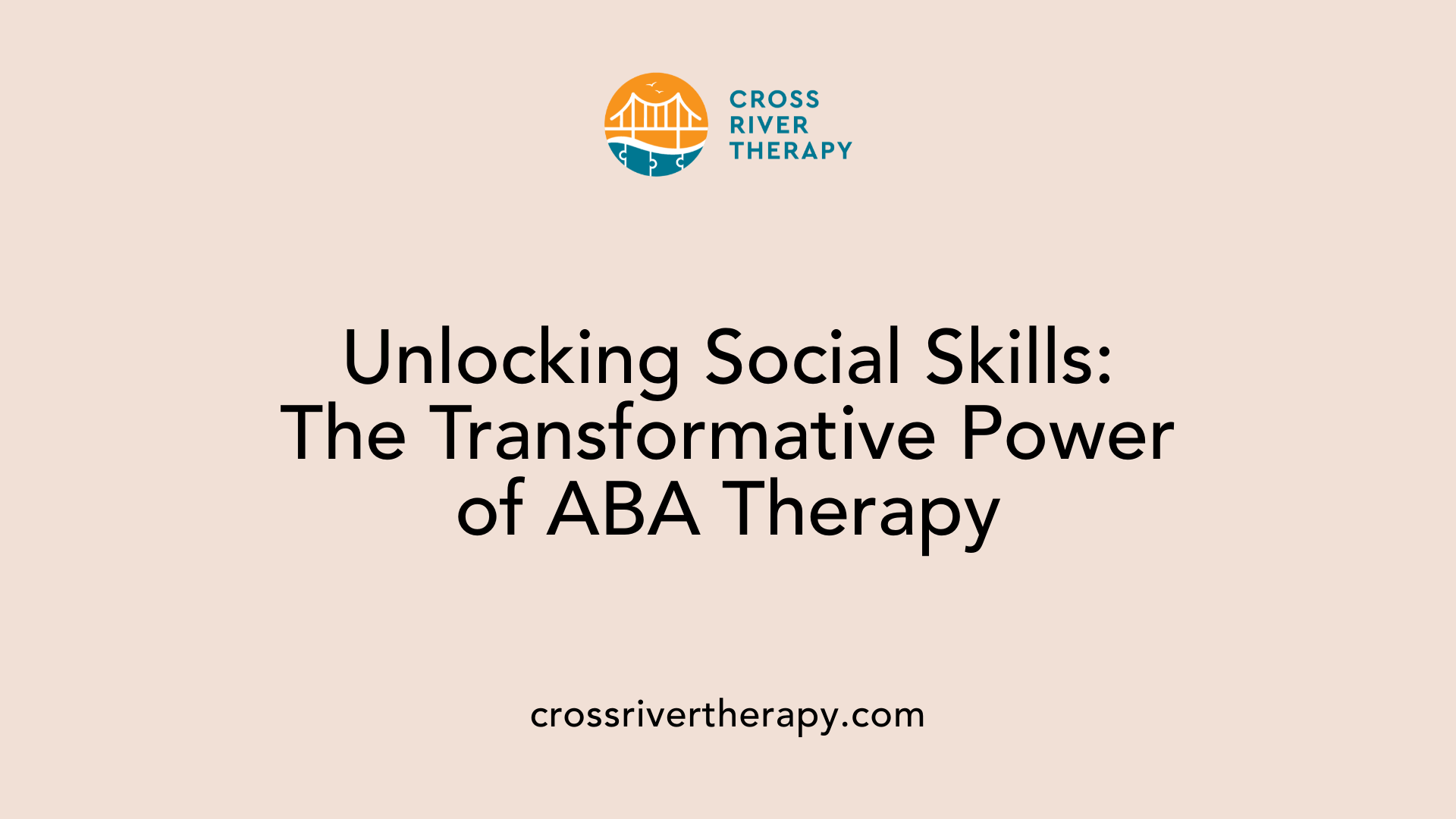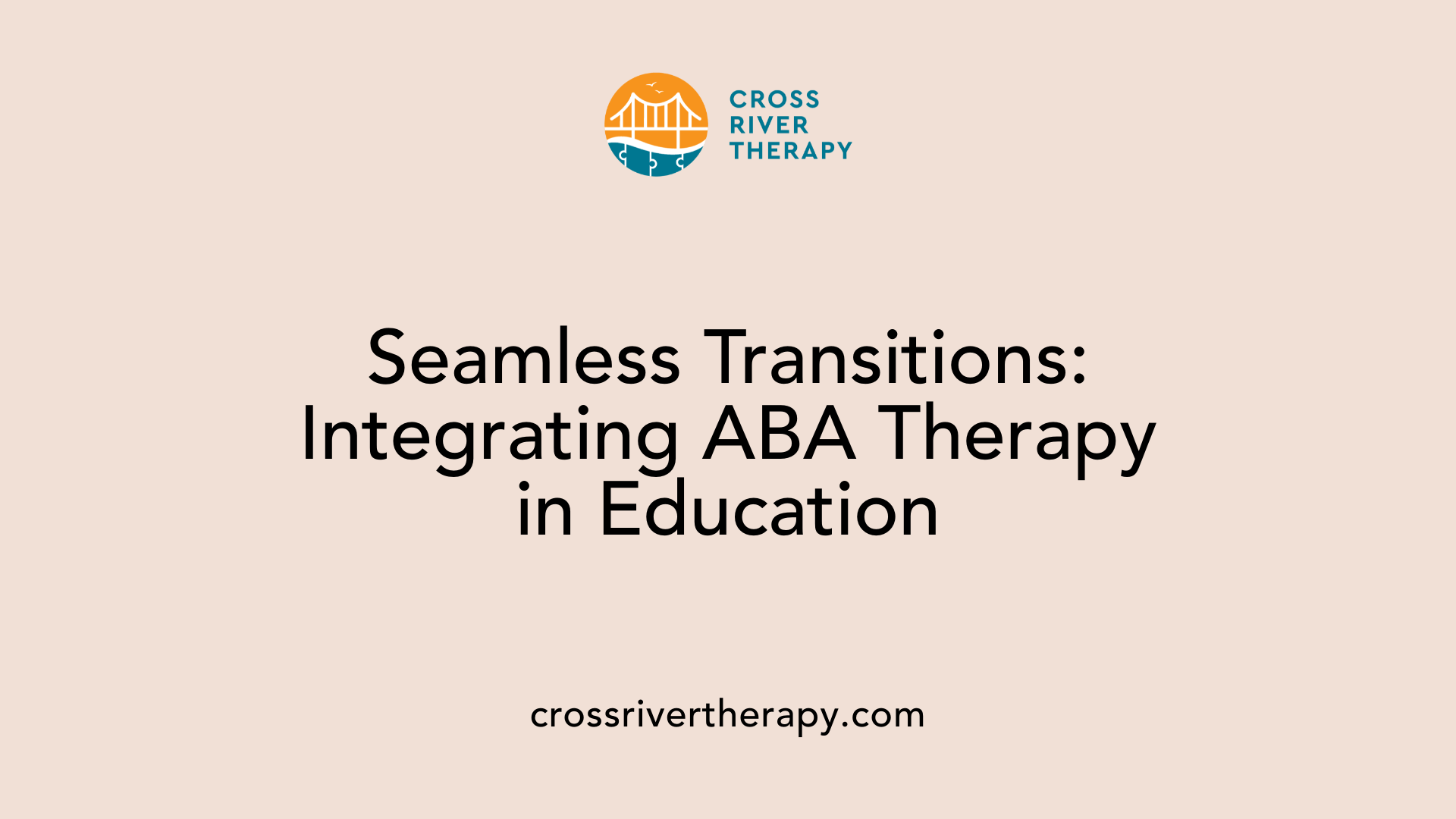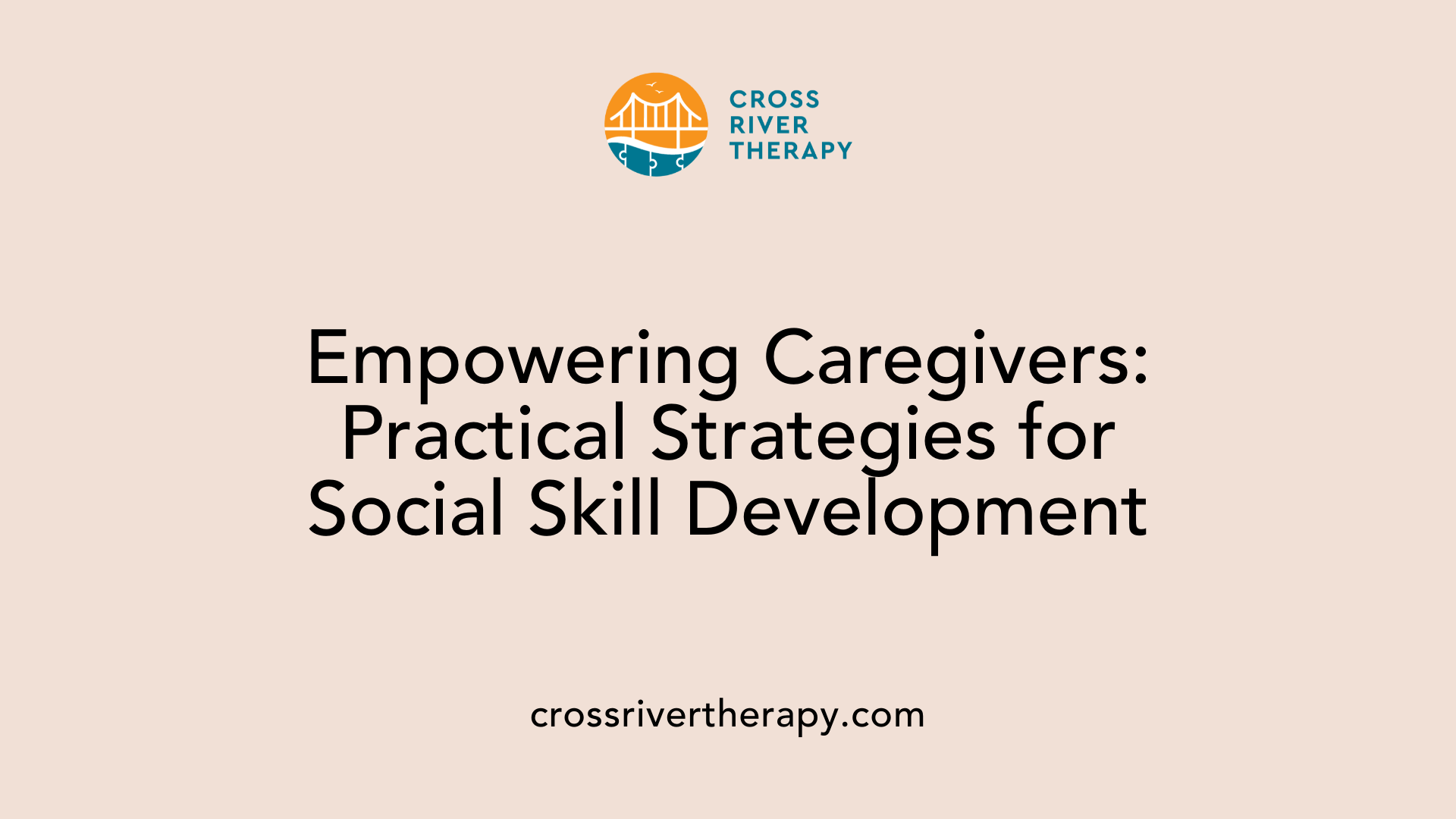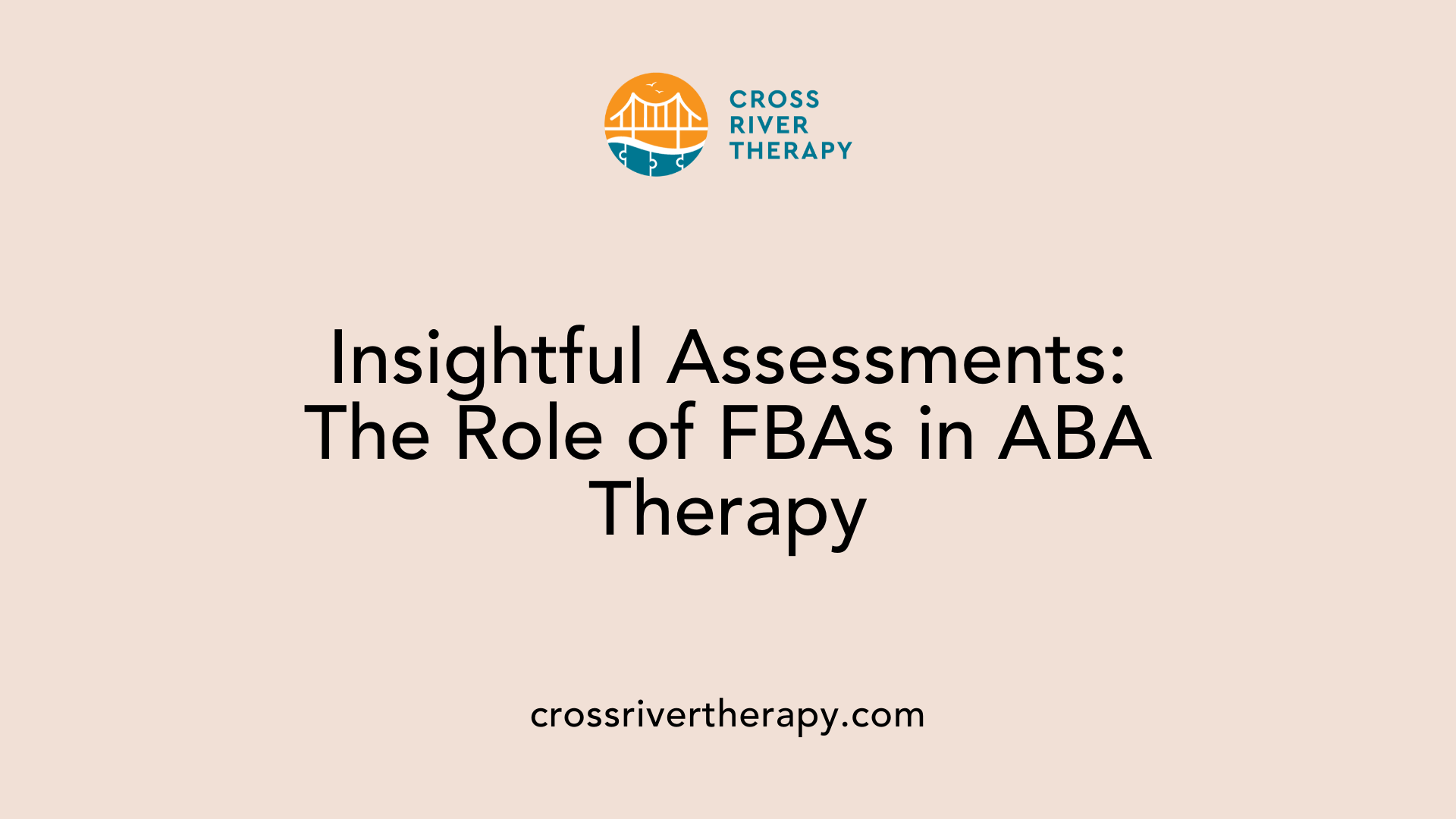How School-Based ABA Therapy Helps with Social Skills Development
Unlocking Social Success Through School-Based ABA Therapy
Importance of Social Skills in Child Development
Social skills are foundational to a child's overall development. These skills enable children to foster positive relationships, impacting their emotional, social, and academic growth. Engaging in play and interactions with peers and adults cultivates problem-solving abilities, empathy, and conflict resolution skills. Early development of social competence is crucial for self-esteem and independence, making transitions to school environments smoother. Well-developed social skills are linked to better cognitive abilities, mental health, and future educational and career success. Conversely, a lack of these skills can lead to loneliness and behavioral challenges, hindering a child's social and academic potential.
How School-Based ABA Therapy Enhances Social Skills

Role of ABA therapy in social skills development
ABA therapy plays a crucial role in developing social skills for students, particularly those on the autism spectrum. Through individualized interventions, this therapy targets specific behavioral needs, allowing each child to progress at their own pace. It employs techniques such as role-playing, modeling, and real-life scenarios to create a structured learning environment.
Key skills like turn-taking, sharing, and conflict resolution are taught, helping children navigate social interactions effectively. Moreover, ABA therapy incorporates Functional Behavior Assessments (FBAs) to identify challenging behaviors and tailor interventions accordingly. This personalized approach fosters emotional regulation and enhances social integration, vital for overall development.
Verbal and non-verbal communication improvement
In ABA therapy, there’s a strong emphasis on enhancing both verbal and non-verbal communication. Techniques employed include Discrete Trial Training (DTT) and Natural Environment Training (NET), which help children recognize and respond to social cues.
Children learn to engage in reciprocal conversation, encompassing the skills of asking questions, answering, and practicing active listening. Nonverbal skills, such as understanding facial expressions and body language, are also targeted, enabling better engagement in social contexts.
Ultimately, through structured and evidence-based methods, ABA therapy significantly improves children's ability to connect with peers, express their needs, and respond appropriately in various social situations, culminating in healthier relationships and greater social confidence.
Strategic Approaches in ABA Therapy for Social Skill Enhancement

What strategies are used in ABA therapy to enhance social skills?
ABA therapy utilizes various strategic approaches to significantly improve social skills tailored to the unique needs of each child. One fundamental technique is Behavioral Skills Training (BST), which combines modeling, practice, and constructive feedback. This method is critical in teaching essential skills such as how to initiate conversations and understand personal boundaries.
Application of learned skills in real-world situations
Additionally, ABA therapy emphasizes the application of these learned skills in real-life contexts. Techniques like Natural Environment Training (NET) encourage the practice of social interactions in everyday settings, which promotes spontaneity in social exchanges. This practical approach supports children's ability to generalize their skills outside the therapeutic environment, enhancing their confidence in social situations.
Role-playing and social narratives
Role-playing and the use of social narratives are also integral parts of ABA. Role-playing allows children to practice social scenarios in a controlled setting, providing a safe space to make mistakes and learn from them. Social narratives help elucidate social nuances and expectations, enabling children to prepare for different social situations by understanding the perspectives of others.
By leveraging these methods, ABA therapy not only teaches children the functional aspects of sociality but also instills self-advocacy and emotional regulation skills. The synergy of structured learning, practical application, and interactive practice ensures that children develop robust social skills essential for their overall growth.
Integrating ABA Therapy into School-Based Transition Services

How does ABA therapy fit into school-based transition services?
In school-based transition services, ABA therapy plays a pivotal role by providing individualized strategies to enhance student focus, behavioral regulation, and engagement in learning activities. This approach is essential for helping students navigate the complexities of academic environments and prepares them for future opportunities.
ABA therapy utilizes structured techniques that break down complex behaviors into manageable steps. This method not only promotes academic success but also instills critical social skills fundamental for effective communication and peer interactions. By reinforcing positive behaviors and reducing challenges, students experience improved emotional regulation, which is vital for a conducive learning environment.
Collaboration is key; educators, parents, and specialists work together to create a cohesive strategy. This teamwork ensures consistency in the implementation of ABA principles, making transitions from school to post-secondary education or employment smoother for students.
Enhancing student focus and behavioral regulation
One of the primary benefits of incorporating ABA therapy into transition services is its impact on students' ability to focus and regulate their behavior. ABA strategies, such as positive reinforcement and targeted interventions, help students engage more fully in classroom activities.
Through techniques like role-playing and modeling, students learn to navigate social situations effectively, fostering essential communication and teamwork skills. Additionally, the individualized nature of ABA therapy allows each student to develop at their own pace, ensuring that they acquire the necessary competencies to build relationships and succeed academically.
Overall, integrating ABA therapy in transition services not only enhances student focus but also prepares them for future social and professional interactions by equipping them with vital life skills.
Practical Strategies for Supporting Social Skill Development through ABA Therapy

What practical strategies can parents, caregivers, and therapists use to support social skills development through ABA therapy?
Parents, caregivers, and therapists play a critical role in the development of social skills through ABA therapy. They can employ a variety of techniques tailored to each child’s needs. Here are some effective strategies:
Structured Environments: Creating structured settings where children can practice social skills through role-playing and peer interaction is essential. This hands-on approach promotes experiential learning.
Positive Reinforcement: Implementing positive reinforcement encourages children to engage more frequently in social interactions. By rewarding desired behaviors, caregivers can motivate children to continue developing these skills.
Modeling Appropriate Behaviors: Therapists and caregivers can model appropriate social behaviors. Demonstrating turn-taking or sharing during playtime allows children to observe and learn.
Social Skills Groups: Facilitating social skills groups provides children opportunities to interact with peers in a safe space. This setting allows for practice while receiving guidance from adults.
Social Stories: Using social stories is an effective way to teach children about specific social situations. These narratives can help illustrate expected behaviors, enhancing understanding of social cues.
Empathy and Reciprocity Training: Teaching concepts of empathy and reciprocity helps children recognize the emotions of others and respond appropriately, fostering deeper connections.
Ongoing Assessment and Adjustment: Continuous evaluation of interventions ensures that strategies are relevant to each child’s unique challenges and strengths, optimizing their learning experience.
Employing these strategies supports children's social skill development through ABA therapy, empowering them to build meaningful relationships and navigate social situations successfully.
Benefits of Individualized Interventions in ABA Therapy
Customized Plans Based on Individual Needs
One of the remarkable strengths of ABA therapy lies in its focus on individualized interventions. Each student's plan is carefully crafted based on their unique behavioral needs. This tailored approach allows therapists to identify specific challenges and strengths, creating a roadmap for skill development. Through functional behavior assessments (FBAs), targeted strategies are designed, promoting effective learning.
For example, a child struggling with social cues may receive direct instruction on recognizing emotions in others and responding appropriately. This level of customization ensures that students learn at their own pace, resulting in significant progress over time.
Promoting Inclusion in Classroom Settings
The implementation of individualized ABA plans not only benefits the students directly involved but also cultivates an inclusive classroom environment. By addressing the diverse needs of learners, ABA therapy fosters better relationships between students and teachers, enhancing overall classroom dynamics. Teachers equipped with ABA techniques can engage all students effectively, while peers learn the importance of cooperation and understanding.
Incorporating collaborative activities, such as group projects, reinforces social and communication skills. This creates opportunities for students to practice their newfound abilities in real-life scenarios, thereby enriching their school experience and preparing them for meaningful interactions both inside and outside the classroom.
| Key Benefits | Description | Example Techniques |
|---|---|---|
| Customized Learning | Plans tailored to each child's needs enhance focus and effectiveness | Functional Behavior Assessments (FBAs) |
| Improved Social Interactions | Individual strategies promote better communication and social skills | Role-playing and peer modeling |
| Increased Inclusion | Targeted support fosters an inclusive environment for all students | Collaborative projects |
| Skills Development | Continuous progress leads to skill advancement and confidence building | Visual aids and structured play |
Role of Functional Behavior Assessments in ABA

Identifying Challenging Behaviors
Functional Behavior Assessments (FBAs) play a crucial role in the ABA therapy framework by systematically identifying challenging behaviors in students. Through direct observation and detailed data collection, therapists pinpoint specific actions that may hinder academic progress and social interactions. This thorough understanding allows therapists to see not just what behaviors occur, but also the contexts in which they happen, setting the stage for effective intervention.
Developing Targeted Interventions
Once challenging behaviors are identified, FBAs facilitate the development of targeted interventions tailored to each child's unique needs. By analyzing the triggers and consequences associated with specific behaviors, therapists can create individualized plans that employ positive reinforcement and strategies to promote desired behaviors. This personalized approach ensures that interventions are not only effective in addressing socially disruptive behaviors but also contribute to the overall development of social skills, fostering an inclusive and supportive learning environment.
Collaboration in ABA Therapy for Social Skills Development
Involvement of educators, therapists, and families
Collaboration among educators, therapists, and families plays a vital role in the success of ABA therapy for social skills development. Educators and behavior analysts work together to create tailored interventions that address each child's unique social needs. This teamwork helps ensure that strategies are consistently applied across different settings—home, school, and social environments—promoting effective learning and skill transfer.
Families are integral to this collaboration. They provide insights into their children's behaviors and needs, which can inform the development of individualized plans. Moreover, training family members in ABA techniques enhances their ability to reinforce skills in daily life, fostering a supportive learning atmosphere.
Promoting consistent strategy implementation
To achieve meaningful progress, consistent implementation of ABA strategies across all environments is crucial. When everyone involved—teachers, therapists, and family members—adopts a unified approach, children are more likely to learn and generalize social skills effectively.
Using structured techniques such as role-playing and Positive Behavior Support (PBS) allows for effective reinforcement in various settings. Consistency in feedback and expectations enhances children's understanding of social interactions, helping them navigate relationships with greater confidence.
The Impact of Social Skills Development through ABA
Improved Communication and Relationships
ABA therapy significantly enhances communication skills in children with Autism Spectrum Disorder (ASD). Through techniques like role-playing and modeling, children learn to start conversations, interpret social cues, and engage in reciprocal interactions. This not only improves their verbal and non-verbal communication but also fosters the ability to build positive relationships with peers and adults.
Additionally, skills such as active listening and sharing are taught, helping children navigate social situations more effectively, leading to better friendships and interactions within their community.
Increased Self-Confidence and Reduced Problematic Behaviors
A crucial advantage of ABA therapy is the boost in self-confidence it provides to children. As they master new social skills and achieve individualized goals, they become more comfortable interacting with others.
This increased confidence helps minimize problematic behaviors that may arise from frustration or misunderstanding in social scenarios. Children learn to self-advocate, respect boundaries, and respond to challenges appropriately, which promotes emotional regulation and a healthier classroom environment.
The Transformative Power of School-Based ABA Therapy
School-based ABA therapy is instrumental in developing crucial social skills for children, particularly those with developmental challenges such as autism. By employing structured and individualized strategies, ABA helps children improve communication, build positive relationships, and enhance overall functioning both academically and socially. It not only aids in transitioning between educational phases but also empowers children to navigate life more independently and confidently. Through ongoing collaboration among educators, therapists, and families, ABA therapy represents a comprehensive approach to fostering social success and well-being in children.
References
- ABA Therapy in Schools: Improving Social Skills and Behavior
- How ABA Therapy Improves Social Skills for Children with Autism
- ABA Therapy in Schools: School-Based ABA Services
- How ABA Therapy Helps With Social Skills
- Enhancing Social Skills Through ABA Therapy
- School-Based ABA Therapy: Boosting Learning and Behavior
- ABA Therapy for Social Skills Development
- Developing Social Skills Through ABA Therapy for Autism



